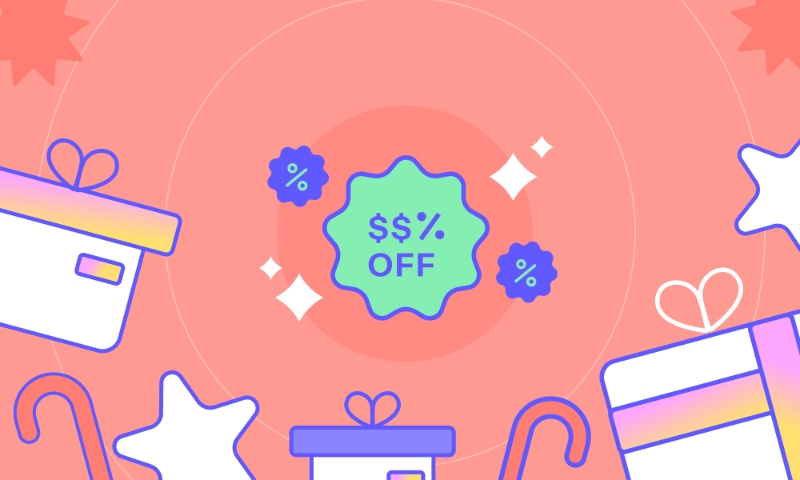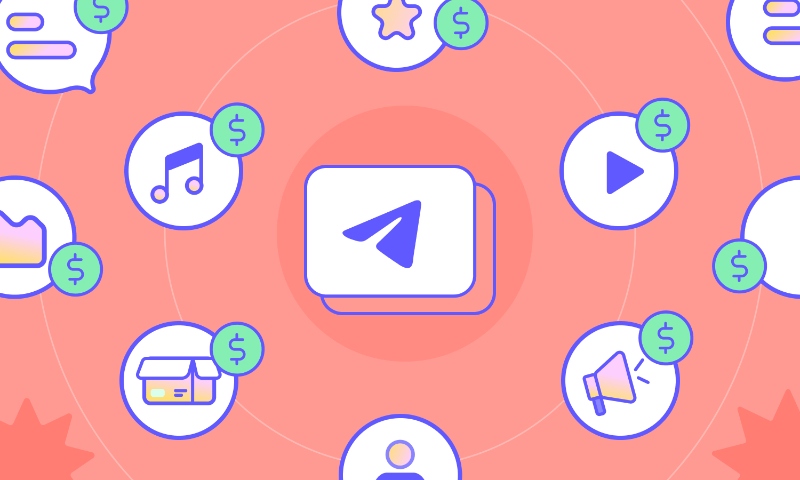Back in time, artists depended on record labels to get their tracks out there. In fact, not too long ago, selling music usually meant signing up with a record label, praying they'd give you a shot. But oh, how the times have changed!
The Internet has turned the music industry on its head.
Artists of all genres are making it big by selling their music online. They're self-releasing singles and albums directly to streaming platforms like Spotify and Amazon Music and building fan bases on social media.
Chance The Rapper, for instance, decided to skip the traditional record deal route. Instead, he used streaming platforms and mixtapes. He dropped his third mixtape, "Coloring Book," in 2016, and made history by becoming the first artist to win a Grammy solely from streaming and selling music online.
With the rise of streaming platforms, online marketplaces, and social media, the barriers to entry have never been lower. So, how can you get in on this action?
Whether you're an independent artist or part of a band, this guide will walk you through the steps to effectively sell your music online and turn your passion into a profitable venture.
Related Blog: What is Digital Download and How to Launch It?
Top 15 Ways To Sell Music/Audio Online
Digital Albums & Singles
Traditional album sales might have declined, but the digital age has brought a new life to selling albums and singles online. Platforms like Bandcamp, iTunes, and Amazon Music allow artists to upload their music for sale.

You can choose to sell individual tracks or entire albums, offering fans the convenience of purchasing and downloading their favorite music instantly. Additionally, you can consider offering exclusive bonus tracks or remixes to entice fans to buy directly from you.
Music Production Templates
As a producer, you can offer music production templates that other producers can use as a starting point for their own tracks. These templates can include pre-made settings for software instruments, effects, and mixing techniques.
Selling templates is a way to share your production expertise and help other producers learn and improve their skills. Templates are especially popular among beginners who want to learn the ropes of music production more effectively.
Related Blog: 10 Ways To Make Money As An Artist In 2023
Subscription Services
Subscription-based models have gained popularity across various industries, including music. By setting up a membership or subscription service, you can offer your fans access to exclusive content, early releases, behind-the-scenes footage, and more.
Platforms like Patreon and SubscribeStar allow you to provide tiered memberships, giving fans different levels of access based on their subscription level. This model not only generates a steady income stream but also fosters a closer connection between artists and fans.
Sheet Music and Tabs
If you're a skilled composer or instrumentalist, selling sheet music and tabs can be a profitable endeavor. Musicians of all skill levels are constantly seeking accurate sheet music for their favorite songs.
Websites like Sheet Music Plus and Musicnotes allow you to list your compositions for sale. You can also consider creating video tutorials to accompany your sheet music, providing additional value to customers.
Music Licensing
Selling your music for commercial use through licensing is a lucrative way to earn income. Many businesses, content creators, and filmmakers require music for their projects.
Websites like Pond5 and Audiojungle allow you to list your tracks for licensing purposes. By offering a range of licensing options (e.g., standard, extended, broadcast), you can cater to different types of clients and earn royalties whenever your music is used.
Virtual Concerts and Livestreams
Live performances have evolved beyond physical venues. Hosting virtual concerts and livestreams enables you to connect with a global audience and generate revenue through ticket sales or donations.
Platforms like StageIt and Twitch provide interactive features, allowing you to engage with fans in real-time. You can offer unique experiences such as Q&A sessions, song requests, and even virtual meet-and-greets to enhance the value for attendees.
Audio Products
Beyond traditional music tracks, consider creating audio products like guided meditations, soundscapes, or ambient compositions. These types of products have a growing demand for use in relaxation, mindfulness, and content creation. By tapping into this market, you can showcase your versatility as a musician and reach a broader audience.
Related Blog: What is an Info Product and How to Create One [Step-By-Step Guide]
Streaming Royalties through Digital Distribution
Take advantage of streaming platforms like Spotify, Apple Music, and Tidal by distributing your music digitally.
Services like DistroKid, TuneCore, and CD Baby allow you to get your music on these platforms and earn royalties whenever your tracks are streamed. While the payout per stream might be small, the cumulative effect can add up over time, especially if your music gains traction.
Sell Band Merchandise Online
Expand your fan experience by selling band merchandise online. Create and sell branded products such as t-shirts, posters, stickers, and more. Use your music's visual identity to create a unique merch line that resonates with your audience. Online platforms like Shopify and Etsy can help you set up an e-commerce store to manage your merchandise sales.
Sell Beats and Samples
If you're a producer, consider selling beats and samples to other artists, producers, and content creators. High-quality beats and samples are in demand for various projects, including music production, podcasts, and videos.
Platforms like BeatStars and Splice provide marketplaces for selling and licensing your beats and samples.
Teach Music Classes by Selling Guides or Lessons
Share your expertise by creating and selling music guides, tutorials, or online lessons. Whether it's teaching an instrument, music theory, or production techniques, there's a growing audience eager to learn from experienced musicians.
Create Exclusive Remixes
Exclusive remixes involve taking your existing music tracks and giving them a new spin. You can collaborate with other artists or producers to create fresh remixes that offer a different perspective on your original work. These remixes can be sold as separate digital products. Fans who love your music may be excited to hear a new version, and this can also attract new listeners who are fans of the collaborating artist.
Custom Compositions
Offering custom compositions involves creating music tailored to a specific individual, event, or purpose. For instance, you could compose a unique piece for a wedding, a corporate video, a podcast intro, or a YouTube channel.
By offering personalized music, you're tapping into a market that values originality and exclusivity. Clients will pay for music that enhances their content or event and aligns perfectly with their vision.
Limited Edition Releases
Limited edition releases are a great way to create a sense of urgency and exclusivity among your fans. You can release a special version of an album or single with added value.
This could include bonus tracks, exclusive artwork, handwritten notes, or even a physical copy of the release. By limiting the availability, you encourage fans to make a purchase sooner rather than later, knowing that the opportunity won't last forever.
Collaborative Projects
Collaborative projects involve working with other musicians, artists, or content creators to create something new together. This could be a joint EP, a music video, a live performance, or even a visual art piece that complements your music.
Collaborations expose your music to new audiences and can lead to cross-promotion. You benefit from each other's networks and can attract fans who are interested in the other collaborator's work.
Related Blog: The 20 profitable digital products to sell online
How To Sell Music Or Audio Products Using Graphy?
Distributing music directly can give you more control over your content and sales process. Whether you're a musician, podcaster, or audio content creator, Graphy provides you with tools to effectively market and distribute your digital audio products. Here's a step-by-step guide to help you get started:

Upload Your Music: Before you start selling your music online, make sure you have high-quality digital versions of your music tracks in formats like MP3 or WAV. Organize your music files and create album art or cover images to accompany each release
Upload Seamlessly: Easily upload your audio products on the Graphy platform. Include important details such as the tracklist, release date, genre, and a brief description. Upload the corresponding music files and attach the album cover image.
Set Your Price: Choose a value that reflects your expertise and the value you provide. You can choose to offer it for free or set a specific amount.
Share Your Genius: Now that your audio product is live, it's time to promote it. Share the product link on social media, through your website, and to your existing audience. Engage with your audience and build excitement around your audio product.
Related Blog: 7 Sureshot Ways to Sell Your Online Digital Products
Rome wasn't built in a day, and neither is booming online music sales. It's a journey that's part creativity, part marketing, and all heart. Keep the beats flowing, stay adaptable, and generate revenue from your audio content.






